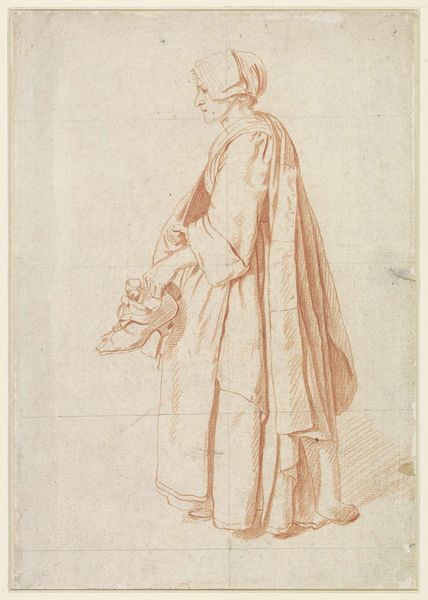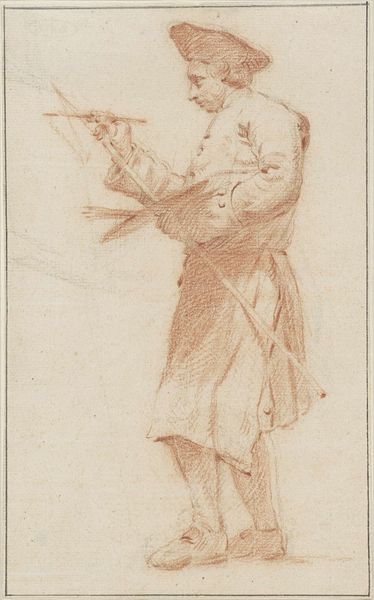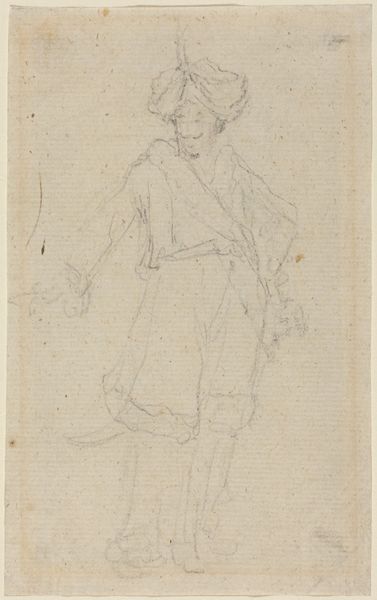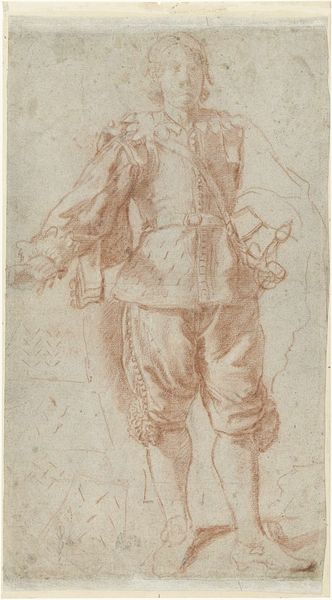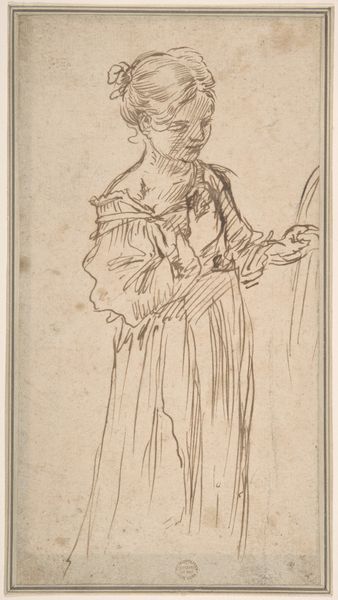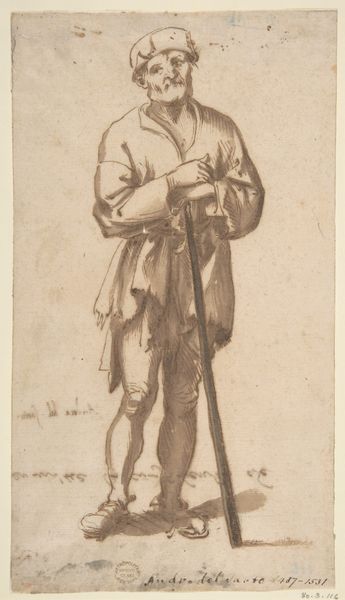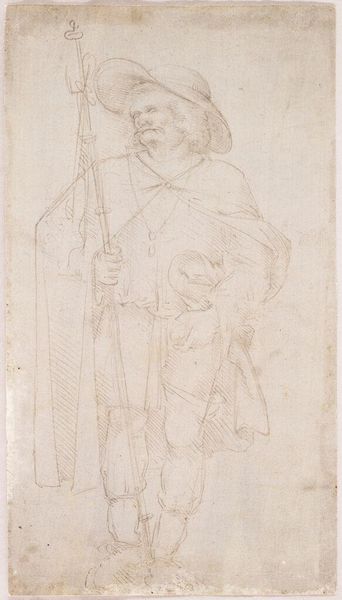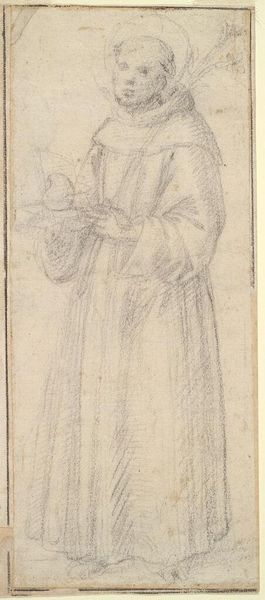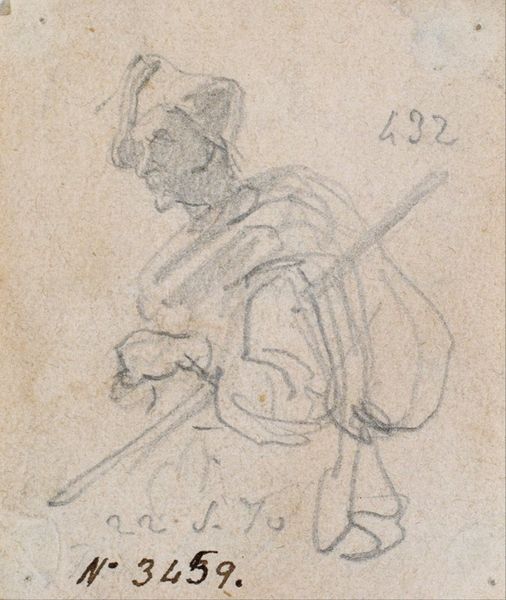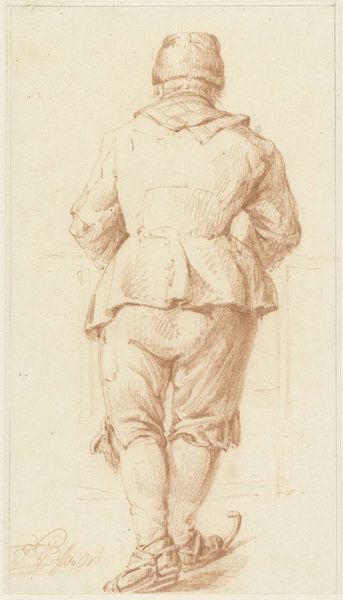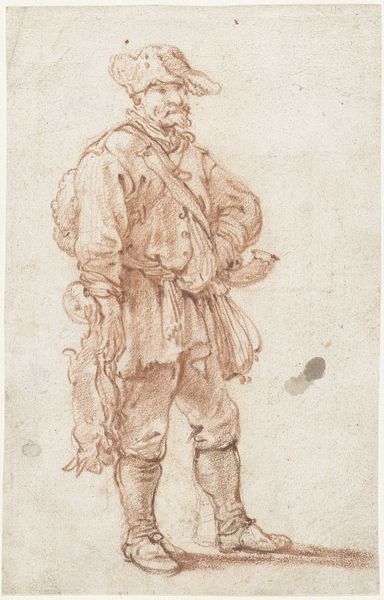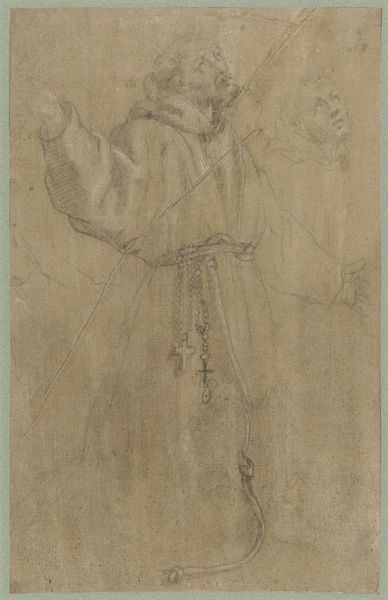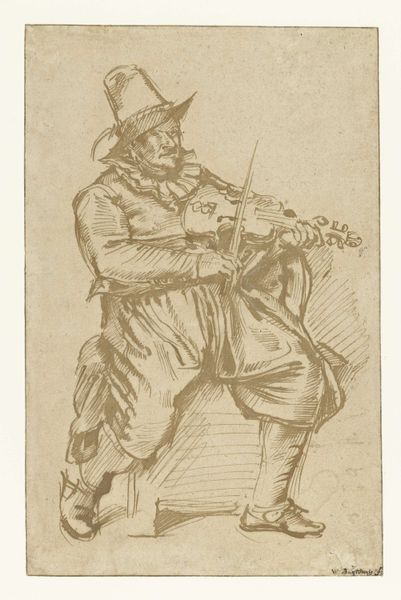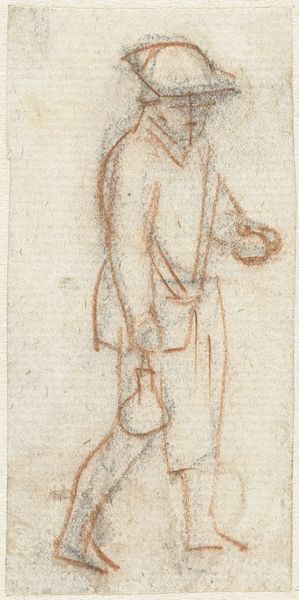
drawing, paper, pencil
#
drawing
#
imaginative character sketch
#
toned paper
#
light pencil work
#
quirky sketch
#
baroque
#
dutch-golden-age
#
pencil sketch
#
paper
#
personal sketchbook
#
idea generation sketch
#
pencil
#
sketchbook drawing
#
genre-painting
#
storyboard and sketchbook work
#
sketchbook art
#
realism
Dimensions: height 173 mm, width 117 mm
Copyright: Rijks Museum: Open Domain
Editor: Here we have Hendrick Avercamp’s “Study of a Standing Duck Hunter, Leaning on his Gun,” a pencil drawing on paper dating from before 1620. There's a certain quietness to it; the sketchiness almost feels like a glimpse into the artist's process. What's your perspective on this piece? Curator: It’s interesting to consider Avercamp’s materials in relation to his subject. A hunter, presumably engaged in acquiring material wealth or sustenance, depicted through the relatively inexpensive and readily available materials of pencil and paper. Consider the accessibility of image-making versus the specialized labor involved in hunting and procuring food. Editor: So, the drawing itself becomes a commentary on the hunter's activity? Curator: Exactly! Think about the social context: Avercamp wasn’t depicting royalty or religious figures, but a commoner engaged in work. This suggests a shift in patronage and artistic focus. How does the drawing, as a manufactured object, relate to the means of survival represented within it? Editor: That makes me think about how the materials themselves tell a story. Pencil and paper are easily transported. Was this drawing perhaps made *in situ* or intended for later use in a larger composition? Could it be a mass production? Curator: Precisely. And consider, too, the consumption aspect. The hunter is presumably procuring food, a consumable item. The drawing itself, as art, also becomes a form of consumable object, reproduced, collected, traded… Does the method of production and display affect its value as a collectible object? Editor: It’s fascinating to consider how a simple sketch opens up questions about labor, materials, and consumption. Thanks, that's been illuminating. Curator: Indeed. Examining the material realities underlying an artwork always offers a fresh perspective on its cultural significance and intended circulation.
Comments
No comments
Be the first to comment and join the conversation on the ultimate creative platform.
